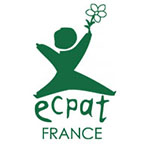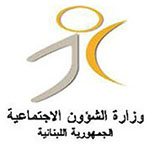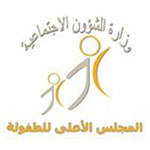
Source: Daily Star-Lebanon News - 27 November 2015
By: Nadine Makarem
BEIRUT:
More than 4 percent of children in Lebanon have been victims of sexual abuse
and the matter has been considered a cultural taboo for too long, a report
released by the Ministry of Social Affairs said. “Though there is still a wall
of silence surrounding the subject. It is a reality in our society,” said Randa
Bou Hamdan, general director of the Social Affairs Ministry.
The
ministry Thursday released the National Study on Sexual Violence Against
Children in Lebanon, in collaboration with the Higher Council for Children and
non-profit organization Dar al-Amal, and with the support of International NGOs
Diakonia and Ecpat France. The event, which took place at the headquarters of
the Beirut Order of Physicians, comes on the occasion of Universal Children’s
Day.
The
study, conducted by main researchers Dr. Bassima al-Munla and Maher Abu Shakra
and assisting researchers Dr. Susan Menhem and Alaa Nehme, used a random sample
of 2,162 children from different social and cultural backgrounds, between 9 and
17 years old – the age span most prone to sexual abuse. The study spanned
children attending private and public institutions, as well as those who are
employed or otherwise not enrolled in school.
The
study found that out of 2,162 children, 89 were victims of sexual abuse (48
girls and 41 boys) – approximately 4.1 percent. Of these, 47.2 percent were
children enrolled in public schools, and 21.3 percent attended private schools,
while 60.4 percent of the victims were aged 10 to 14.
The
results also highlighted the most common locations where abuse took place. Some
66.7 percent of victims reported they had been abused within a home environment
(not specifically their own household). “We notice that male victims reported
being abused in public spaces more than females,” said Munla. “This is because
families worry about young girls and shelter them at home, whereas young boys
have more freedom to move about.”
The
old phrase “never take candy from strangers” was found to be sadly fitting –
the study identified candy and gifts as the most common methods of luring
children, though this was not limited to strangers. People involved in the life
of the child, , whether in the family, the school or the neighborhood, were one
major type of predator identified by the report; individuals involved in
exploitation networks or human trafficking were another. “It is important to
realize that predators are in our homes, at our schools, among us,” Bou Hamdan
warned.
The
role of technology in easing the way for sexual predators was also emphasized
throughout the report. “Violence has become easily permissible with the large
spread of information technology and the lack of proper control and oversight,”
said Bou Hamdan. Online abuse is one of many various forms of sexual
exploitation, including verbal abuse (the most common form of abuse, which 43
percent of children claimed to have experienced), physical contact without
performing a sexual act, visual abuse, and direct sexual acts.
Munla
also said that “there are specific circumstances that make certain children
more prone to abuse than others,” and suggested focusing on alleviating such
conditions as a step toward protecting children. The report deduced that
children that are physically or morally abused within the household, working or
not enrolled in school, consuming drugs or alcohol, suffering from chronic
diseases or disabilities, spending little time at home, feeling neglected by
family, or who maintain social relationships without supervision are all more
susceptible to sexual abuse.
The
study provided recommendations to decrease the occurrence of abuse and to
support victims. From a legal perspective, the Lebanese penal code related to
perpetrators of sexual abuse should be amended to increase sentences. In
parallel, child protection laws should impose jurisdiction within the household
and over family members, and medical ethics laws should be amended to improve
awareness regarding cases of sexual abuse.
Within
the household, the traditional conception of “nurture” should be developed to
allow open discussion about abuse. Parents should play a role in raising
awareness and teaching their children methods for avoiding exploitation
“I
stress the importance of these recommendations, and I look forward to
coordinating and working together to put together advocacy campaigns,” said
Diakonia country representative Rodolph Gebrael, addressing the ministry and
his counterparts.
The
study based its data on the definition of “sexual abuse” used by the World
Health Organization: “The involvement of a child in sexual activity that he or
she does not fully comprehend, is unable to give informed consent to, or for
which the child is not developmentally prepared, or else that violate the laws
or social taboos of society. Children can be sexually abused by adults or other
children who are – by virtue of their age or stage of development – in a
position of responsibility, trust, or power over the victim.”
A version of this
article appeared in the print edition of The Daily Star on November 27, 2015,
on page 4.



